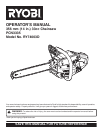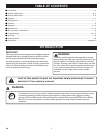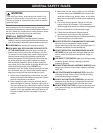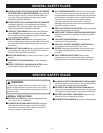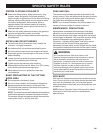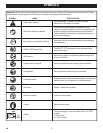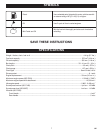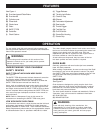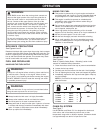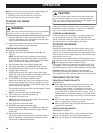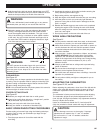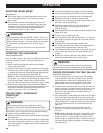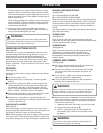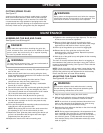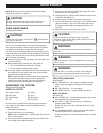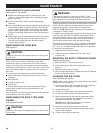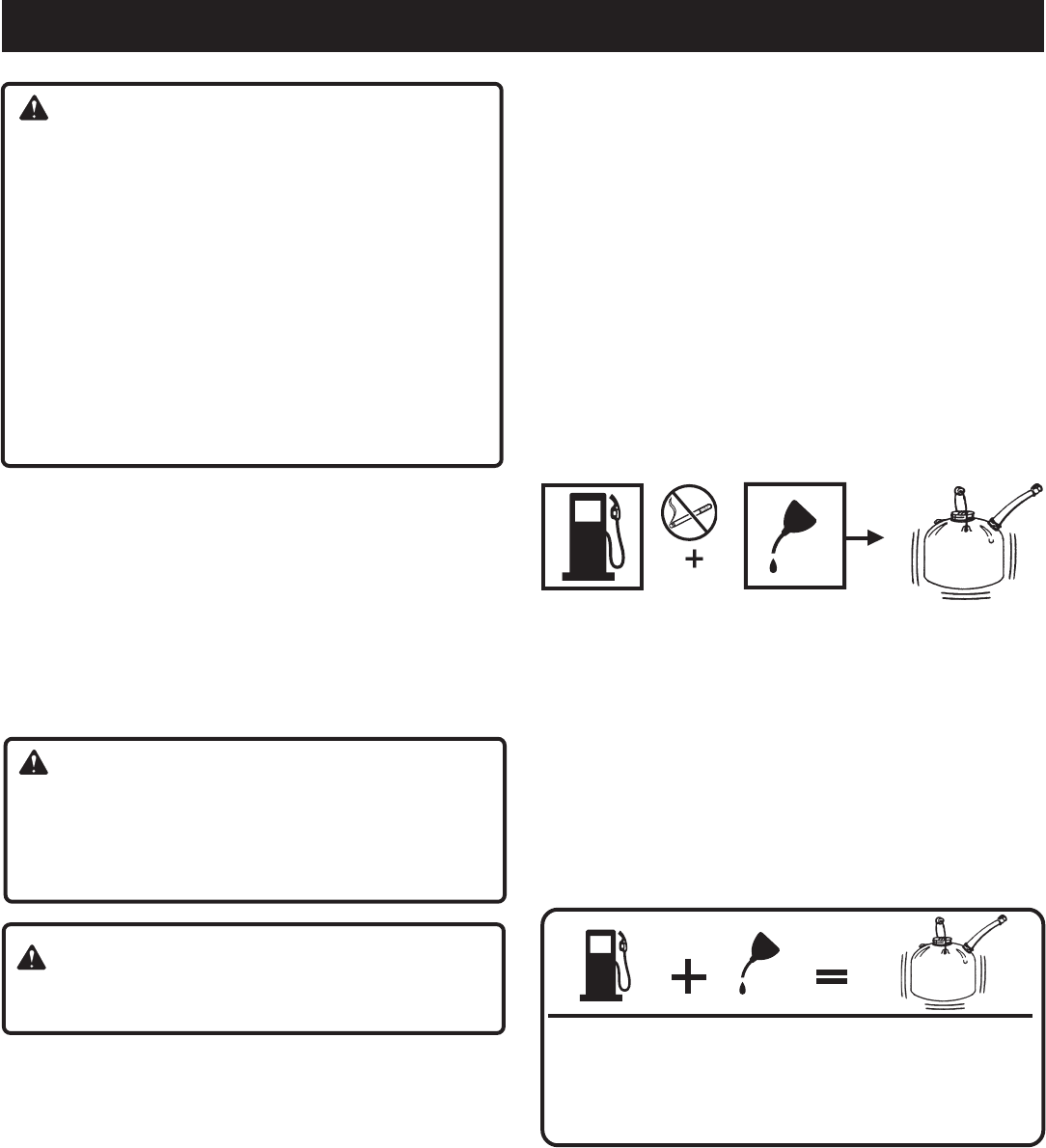
9
UK
KICK-BACK PRECAUTIONS
See Figures 4 and 5.
Rotational kick-back (A) occurs when the moving chain contacts
an object at the Kick-back Danger Zone (B) of the guide bar. The
result is a lightning-fast, reverse reaction which kicks the guide
bar up and back towards the operator. This reaction may cause
loss of control which can result in serious injury.
FUEL AND REFUELLING
HANDLING THE FUEL SAFELY
WARNING:
KICK-BACK
occurs when the moving chain contacts an
object at the upper portion of the tip of the guide bar or
when the wood closes in and pinches the saw chain in
the cut. Contact at the upper portion of the tip of the
guide bar can cause the chain to dig into the object and
stop the chain for an instant. The result is a lightning-
fast, reverse reaction which kicks the guide bar up and
back toward the operator. If the saw chain is pinched
along the top of the guide bar, the guide bar can be
driven rapidly back toward the operator. Either of these
reactions can cause loss of saw control which can result
in serious injury.
Do not rely exclusively upon the safety devices built into
your saw. As a chainsaw user, you should take several
steps to keep your cutting jobs free from accident or injury.
WARNING:
Always turn off engine before refuelling. Never add fuel to
a machine with a running or hot engine. Move at least
15 m (50 ft.) from refuelling site before starting the engine.
DO NOT SMOKE! Failure to heed this warning can result
in possible personal injury.
■■
■■
■ Always handle fuel with care: it is highly flammable.
■■
■■
■ Always refuel outdoors and do not inhale fuel vapour.
■■
■■
■ Do not let petrol or oil come in contact with skin.
■■
■■
■ Keep petrol and oil away from the eyes. If petrol or oil comes
in contact with the eyes, wash them immediately with clean
water. If irritation is still present, see a doctor immediately.
■■
■■
■ Clean up spilled fuel immediately.
WARNING:
Check for fuel leaks. If any are found, correct them before
using the saw to prevent fire or burn injury.
}
50:1
FILLING THE TANK
See Figure 6.
Refer to “Specific Safety Rules – Refuelling” earlier in this
manual for additional safety information.
1. Clean the surface around fuel cap to prevent contamination.
2. Loosen the fuel cap slowly.
3. Carefully pour the fuel mixture into the tank. Avoid spillage.
4. Prior to replacing the fuel cap, clean and inspect the gasket.
5. Immediately replace the fuel cap and hand tighten. Wipe up
any fuel spillage.
NOTE: It is normal for the engine to emit smoke during and
after the first use.
MIXING THE FUEL
■■
■■
■ This product is powered by a 2-cycle engine and requires
pre-mixing petrol and 2-cycle oil. Pre-mix unleaded petrol and
2-cycle engine oil in a clean container approved for petrol.
■■
■■
■ This engine is certified to operate on unleaded petrol
intended for motor vehicle use with an octane rating of
87 ([R + M] / 2) or higher.
■■
■■
■ Do not use any type of pre-mixed petrol/oil from fuel service
stations, this includes the pre-mixed petrol/oil intended for
use in mopeds, motorcycles, etc.
■■
■■
■ Use a high quality 2-cycle self-mixing oil for air-cooled
engines. Do not use motor vehicle oil or 2-cycle outboard oil.
■■
■■
■ Mix 2% oil into the petrol. This is a 50:1 ratio.
■■
■■
■ Mix the fuel thoroughly and each time before refuelling.
■■
■■
■ Mix in small quantities. Do not mix quantities larger than
usable in a 30-day period. A 2-cycle oil containing a fuel
stabiliser is recommended.
1 Litre + 20 ml =
2 Litres + 40 ml =
3 Litres + 60 ml =
4 Litres + 80 ml =
5 Litres + 100 ml =
CHAIN OIL SYSTEM
See Figure 7.
Use RYOBI Bar and Chain Oil. It is designed for chains and
chain oilers, and is formulated to perform over a wide
temperature range with no dilution required. Chainsaw should
use approximately one tank of oil per tank of fuel.
OPERATION



